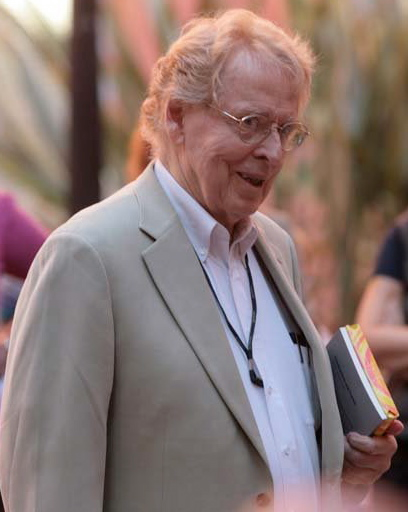Another way to misunderstand headlines
MedPage Today is an excellent source for medical news — but recently their email service has started juxtaposing headline-fragments in a way that takes me aback:

Read the rest of this entry »
MedPage Today is an excellent source for medical news — but recently their email service has started juxtaposing headline-fragments in a way that takes me aback:

Read the rest of this entry »
Some years ago (in 2008, as a matter of fact), I wrote a post entitled "How to learn to read Chinese". The current post is intended as a followup and supplement to that post.
Read the rest of this entry »
Some (perhaps algorithmic) drudge on the Google Books assembly line has a (perhaps accidental) sense of humor. Tracking down a surprising apparent antedating of a piece of managerial jargon, I found this:
Read the rest of this entry »
In "Whom loves ya?", 2/12/2014, Geoff Pullum riffed on one of the outcomes of "a large-scale statistical study of what correlates with numbers of responses to online dating ads", namely that "men who use 'whom' get 31% more contacts from opposite-sex respondents".
It suited Geoff's rhetorical purposes to take this number at face value, but I wondered about where it really comes from, and what if anything it means.
Read the rest of this entry »
Jim Unger recently got a new microwave oven made by Haier in China. He soon noticed that, when the cooking is done, it displays the following notice: GOOD. Since that seemed a bit odd, Jim thought about it for awhile, but then realized that it must be a translation of Mandarin hǎole 好了 (lit., "has become good"), which can mean lots of things ("well; okay; all right; ready", and so forth), but in this case indicates "done".
Read the rest of this entry »
The following is a guest post by Ammon Shea, a researcher for the Oxford English Dictionary's Reading Program and formerly a consulting editor for American Dictionaries for Oxford University Press.
Hendrik Hertzberg has made a series of claims recently on the New Yorker web site ("Nobody Said That Then!") about the ostensible inaccuracy of the language used in the television show Masters of Sex. His main contention is that many of the characters' utterances are improbable, asserting that certain words and phrases were not in use at the time that the show takes place (the mid-1950s). One of the problems with making bold and declarative statements about the origins of specific words is that these words have a nasty habit of first appearing much earlier or later than memory or intuition would attest.
Read the rest of this entry »
That would be the flood of misnegations… John Shinal, "Analysis: Will too many cooks spoil a Microsoft revival?", USA Today 2/14/2014:
Nokia and Microsoft have both been drowned out in a market flood that neither Elop nor anyone at Microsoft, including outgoing CEO Steve Ballmer, has been unable to stem.
[Tip of the hat to Rick Rubenstein]
Eric Zorn, "The 'gubernatorial' war", Chicago Tribune 2/12/2014:
Does your eye stop and and stumble, as mine does, on such phrases as "the four Republican governor candidates"? Or "Governor candidate Bill Brady"?
If so, you are a fellow casualty of the war on the word "gubernatorial," an admittedly odd, Latinate word that every four years I feel duty bound to remind readers comes from the Latin verb "gubernare" means to steer or lead.
Consistency would demand that the state leader be the gubernor, not governor (from the Old French "governer"), or that we refer to the "governatorial race," but we don't.
Instead we are adopting "governor candidate" and even — horrors! — "governor race" ("governor's race" seems OK, though) in order to avoid the goober.
Read the rest of this entry »
The worst choice of preposition-phrase modifier placement anywhere in the world last week was probably the one at the E! online page. The headline read as follows:
Cameron Diaz Encourages Women to Keep Their Pubic Hair in Her New Book
Women of the world, listen to Language Log: stop keeping locks of your pubic hair pressed between the pages of Diaz's book. This whole craze is the result of a misunderstanding that should have been foreseeable. It is quite the opposite of what Ms. Diaz intended. The only fortunate thing about the incident is that it really does illustrate and underline the importance of syntax.
Read the rest of this entry »
Permalink Comments off
 Arnold Zwicky shares the sad news that the Berkeley linguist Charles J. "Chuck" Fillmore passed away yesterday. Arnold quotes Amy Dahlstrom's Facebook update:
Arnold Zwicky shares the sad news that the Berkeley linguist Charles J. "Chuck" Fillmore passed away yesterday. Arnold quotes Amy Dahlstrom's Facebook update:
Charles Fillmore died yesterday at age 84 after a long battle with cancer. A brilliant linguist, especially in the field of lexical semantics, who influenced so many of us Berkeley students and colleagues elsewhere. He was sweet and funny and loving, and deeply devoted to [his wife, Berkeley linguist] Lily Wong Fillmore. The loss of my Doktorvater feels like the loss of a parent.
Read the rest of this entry »
Today's Doonesbury:
This is actually a re-run of a strip from 1/8/2013, and not everyone got it then:
Apologies for the non-sequitur, but in today’s Doonesbury strip a character uses the phrase “to rock the snark”. Does anyone know what this phrase means?
Nobody answered the question on that 2013 comment thread, but we're here to offer lexicographic help to those who may still be puzzled a year later.
Read the rest of this entry »
In celebration of Valentine's Day, special commemorative train tickets for a trip between Dàlín (大林) and Guīlái (歸來) were a big hit in Taiwan this morning.
Read the rest of this entry »
 Jim Romenesko, "Brent Bozell urges liberal media to 'tell the truth,' while he fibs about writing a column", 2/13/2014:
Jim Romenesko, "Brent Bozell urges liberal media to 'tell the truth,' while he fibs about writing a column", 2/13/2014:
The conservative Media Research Center often urges liberal news outlets to TELL THE TRUTH, but the Reston, VA-based press watchdog isn’t telling the truth about its own leader: Brent Bozell doesn’t write the syndicated column that appears under his byline.
It is longtime MRC media analysis director Tim Graham who writes “almost everything published under [Bozell's] name,” a former MRC employee tells me in an email. “That includes his weekly column. Same goes for his books, which at least carry Graham’s name in a secondary billing, but also aren’t written by Bozell (but Bozell keeps 80-90% of the advance and all profits!)”
Two other people with ties to MRC confirmed that Graham is Bozell’s ghostwriter – and that Graham is not happy with the assignment.
“Tim just resents having to do it,” says a former employee.
Read the rest of this entry »